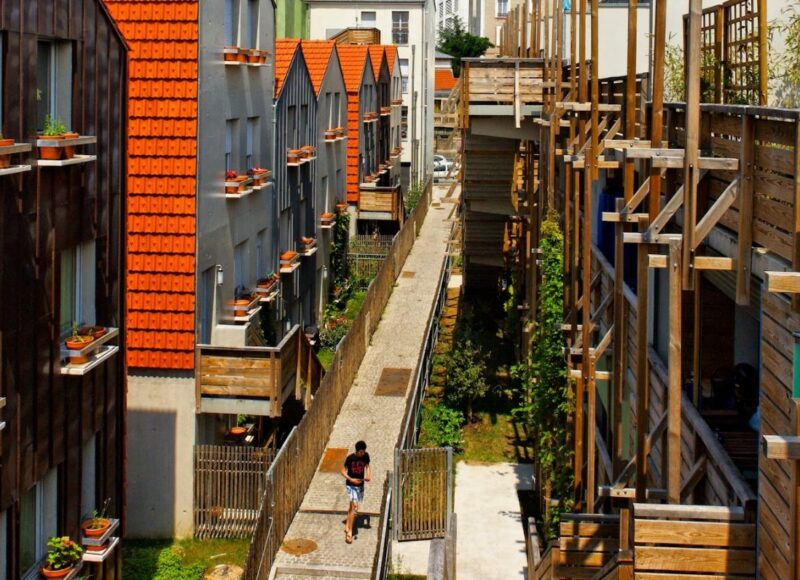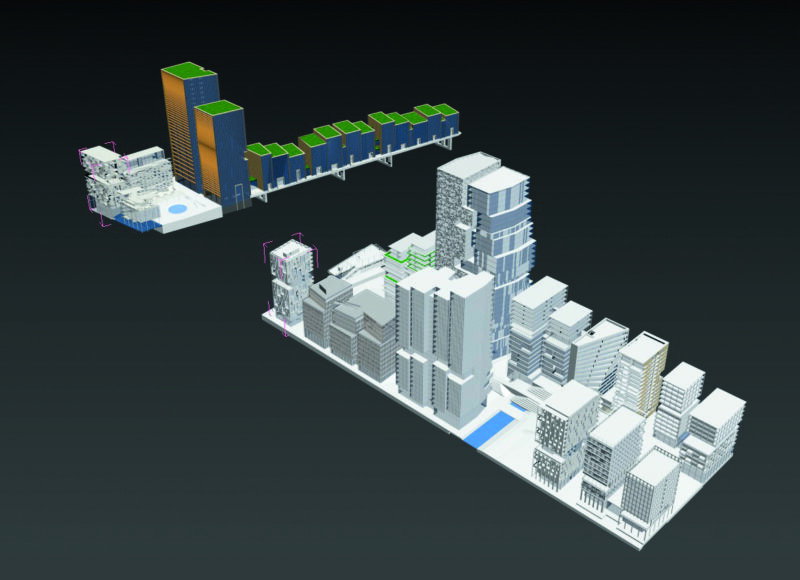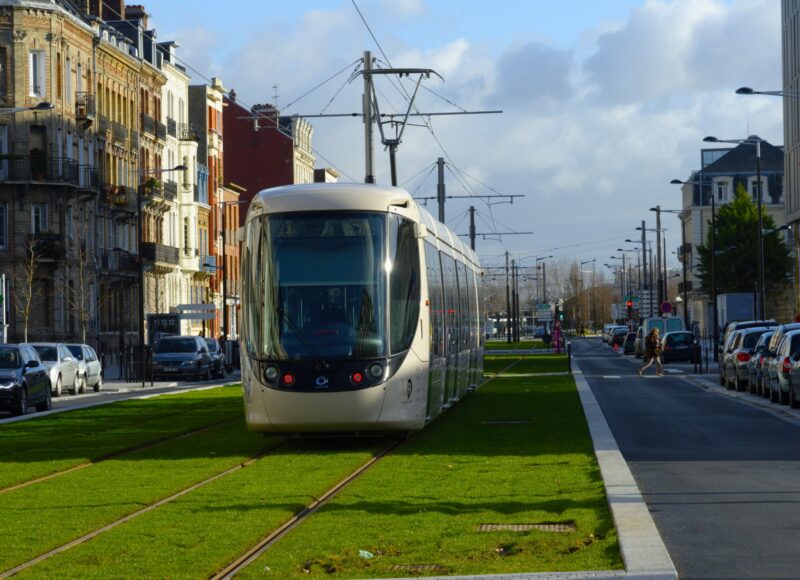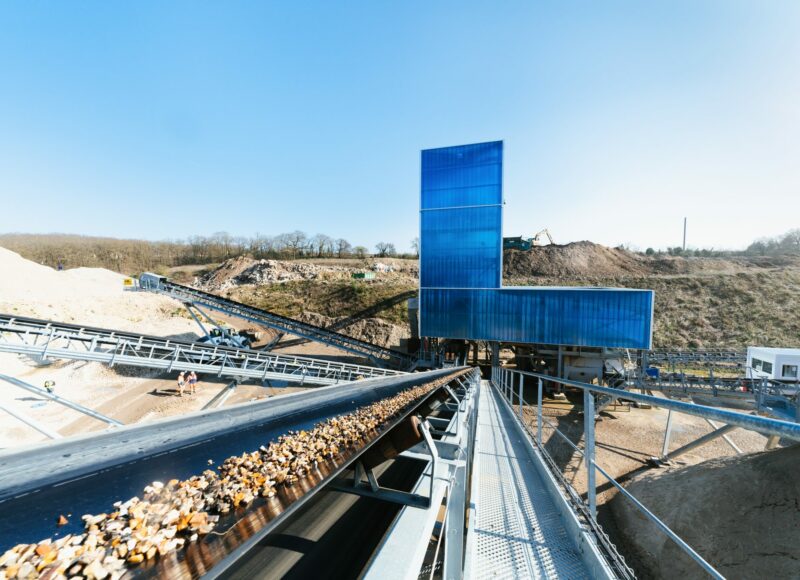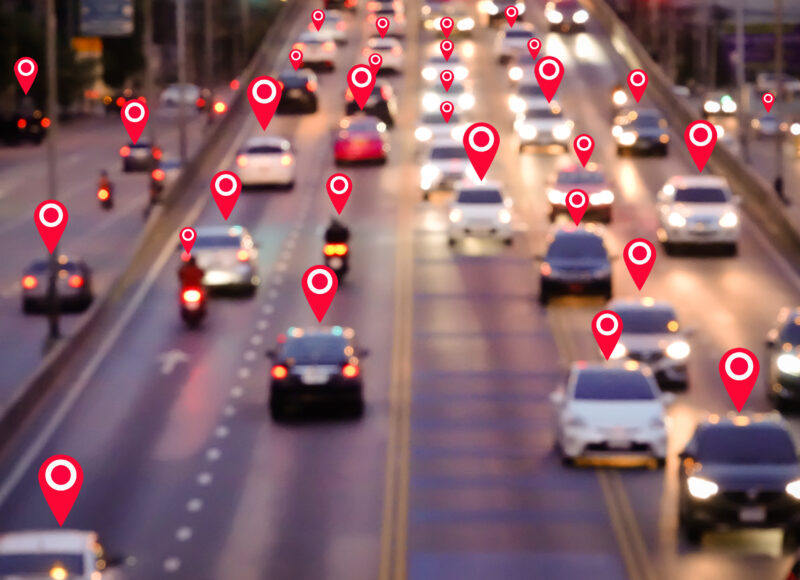Nicolas CoulombelLecturer and researcher
École nationale des ponts et chaussées
LVMT
LVMT
Nicolas Coulombel, an engineer from the Corps des Ponts, Eaux et Forêts, and a doctor in urban economics from the Ecole des Ponts (2010), is a lecturer at the Ecole des Ponts ParisTech and a researcher at the Laboratoire Ville Mobilité Transport (LVMT) at the Université Paris Est. He is currently Scientific Director of the Environmental Research Lab. His main research focuses on the links between cities and transport, combining economic approaches and digital models.
Life-cycle assessment is a method to assess the environmental impacts of buildings and infrastructures throughout their life cycle, from the extraction of raw materials through to their end-of-lifetime handling.
Learn more
The environmental performance of mobility systems is linked to energy consumption, emissions of pollutants and greenhouse gases and the effects of disruption and fragmentation of natural habitats due to the construction
Learn more
Scientific publications
Conference papers
Coaches vs trains in the provision of regional mobility services: the case of France
Society for Benefit-Cost Analysis 2024 Annual Conference, Mar 2024, Washington, United States
Read more
Journal articles
How unequal are travel costs? Evidence from the Paris Region, À quel point les coûts de transport sont-ils inégaux pour les ménages ? Le cas de l‘Ile-de France
Région et Développement, 2024, 59, pp.11-32
Read more
Conference papers
On-Demand Autonomous Vehicle Service in Rural Areas in Ile-de-France: Multi-Agent Modeling and Evaluation of Potential Benefits
Workshop MATSim User Meeting, 12th symposium of the European Association for Research in Transportation (hEART), European Association for Research in Transportation, Jun 2024, Espoo, Finland
Read more
Conference papers
On-demand Autonomous Vehicles in a periurban territory: a Cost Benefit Analysis
The 103rd Transportation Research Board (TRB) Annual Meeting, Jan 2024, Washington D.C, United States
Read more
Journal articles
On-Demand Autonomous Vehicles in Berlin: A Cost–Benefit Analysis
Transportation Research Record, 2024, 2678 (5), pp.13-30. ⟨10.1177/03611981231186988⟩
Read more
Conference papers
An integrated road traffic-emissions-CTM model chain to assess urban air quality at the street level for the Paris region
11th MATSim User Meeting, Sep 2023, Zurich, Switzerland
Read more
Projects
The trips generated by a neighbourhood are quantified and characterised using models for forecasting transport demand. The environmental impacts associated with these trips are then estimated using an LCA-type approach
Learn more
Simulating the daily activities and mobility of people who live in or pass through a neighbourhood makes it possible to better anticipate the economic, social and environmental impacts.
Learn more
Pilot site
A development project in the Les Lumières Pleyel neighbourhood in Saint-Denis (93) is the testing ground for research work by MINES ParisTech and École des Ponts ParisTech.
Learn more
Practitioner groups
Research work on mobility at the neighbourhood level focuses on the development of environmental impact assessment methods that make it possible to better plan the offer of mobility services in the broad sense
Learn more
The environmental assessment of the circular economy is a recurring issue, particularly in the context of recycling aggregates in concrete or even in the context of conventional reuse.
Learn more
L'analyse de la mobilité à partir de traces numériques permet de mieux connaître le déplacement des individus. Des nouvelles formes de données, ainsi que des méthodes d'intelligence artificielle, peuvent
Learn more
- About
- Research areas
- Scientific publications
- Projects
- Pilot sites
- Practitioner groups



